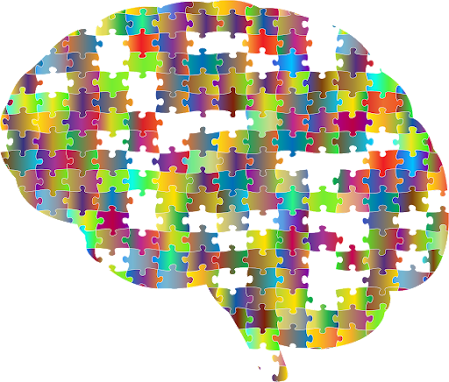Characteristics, Signs and Symptoms of a Psychopath
“Psychopaths are generally viewed as aggressive, insensitive, charismatic, irresponsible, intelligent, dangerous, hedonistic, narcissistic and antisocial. These are persons who can masterfully explain another person's problems and what must be done to overcome them, but who appear to have little or no insight into their own lives or how to correct their own problems.
Those psychopaths who can articulate solutions for their own personal problems usually fail to follow them through. Psychopaths are perceived as exceptional manipulators capable of feigning emotions in order to carry out their personal agendas.
Without remorse for the plight of their victims, they are adept at rationalization, projection, and other psychological defense mechanisms. The veneer of stability, friendliness, and normality belies a deeply disturbed personality. Outwardly there appears to be nothing abnormal about their personalities, even their behavior.
They are careful to maintain social distance and share intimacy only with those whom they can psychologically control. They are noted for their inability to maintain long-term commitments to people or programs.”― Eric W. Hickey, Forensic Psychologist
“The 16 characteristics of psychopaths:
Intelligent
Rational
Calm
Unreliable
Insincere
Without shame or remorse
Having poor judgment
Without capacity for love
Unemotional
Poor insight
Indifferent to the trust or kindness of others
Overreactive to alcohol
Suicidal
Impersonal sex life
Lacking long-term goals
Inadequately motivated antisocial behavior”
Warning Signs you’re Dealing with a Psychopath
Definition and Characteristics of a Psychopath
A psychopath is an individual who exhibits a specific set of personality traits and behaviors associated with a psychological disorder known as psychopathy. Psychopathy is characterized by a profound lack of empathy, a disregard for the rights and feelings of others, manipulative tendencies, and a shallow affect (lack of emotional depth). It is important to note that psychopathy is considered a clinical diagnosis and should be assessed by trained mental health professionals.
Here are some key characteristics commonly associated with psychopathy:
- Lack of Empathy: Psychopaths have a limited ability to experience or understand the emotions and perspectives of others. They may struggle to show compassion, remorse, or guilt for their harmful actions.
- Superficial Charm: Psychopaths often possess an engaging and charismatic demeanor, which they use to manipulate and exploit others. They can appear charming, persuasive, and charismatic, while masking their true intentions.
- Manipulative and Deceptive: Psychopaths are skilled at manipulating others to achieve their own goals. They may lie, deceive, or manipulate situations to their advantage without remorse or consideration for the well-being of others.
- Impulsivity and Irresponsibility: Psychopaths frequently engage in impulsive and reckless behaviors without thinking about the potential consequences. They may show a disregard for rules, social norms, and obligations.
- Lack of Remorse or Guilt: Psychopaths typically do not feel genuine remorse or guilt for their harmful actions. They may rationalize their behavior or shift blame onto others, demonstrating a lack of personal accountability.
- Shallow Emotions: Psychopaths often display a limited range and depth of emotions. They may have difficulty forming deep emotional connections or experiencing complex emotions such as love, empathy, or remorse.
- Lack of Long-Term Goals: Psychopaths tend to focus on immediate gratification and short-term gains rather than long-term planning. They may have difficulty maintaining stable relationships, employment, or other commitments.
- Risky Behavior and Impaired Judgment: Psychopaths may engage in risky or antisocial behavior, such as substance abuse, criminal activity, or aggression. They often have impaired judgment and struggle to consider the potential negative consequences of their actions.
What is a psychopath? Healthline
Characteristics of the Modern Psychopath Psychology Today
Signs of a Psychopath: Traits & Characteristics Choosing Therapy
Psychopathy & Aggression: When Paralimbic Dysfunction Leads to Violence PMC
The Empathic Brain of Psychopaths: From Social Science to Neuroscience in Empathy
Frontiers in Psychology
Frontiers in Psychology
Twenty Warning Signs: You may be dealing with a Psychopath Personal Growth Counseling
Warning Signs you’re Dealing with a Psychopath CBT Psychology
Warning Signs you’re Dealing with a Psychopath CBT Psychology
What is a psychopath? Healthline
Psychopathy / Psychopath Book Mentions
The Mark of Cain : Psychoanalytic Insight and the Psychopath
J. Reid MeloyThe Mask of Sanity: An Attempt to Clarify Some Issues About the So Called Psychopathic Personality Hervey M. Cleckley
The Psychopath Inside: A Neuroscientist's Personal Journey into the Dark Side of the Brain
James Fallon
James Fallon
The Psychopath Whisperer: The Science of Those Without Conscience
Kent A. Kiehl PH. D
Kent A. Kiehl PH. D
Violence and Psychopathy
Robert D. Hare (auth.) & Adrian Raine & José Sanmartín (eds.)Without Conscience : The Disturbing World of the Psychopaths Among Us
Robert D. Hare PH.D.
Signs You're Dealing With a Psychopath - Video
